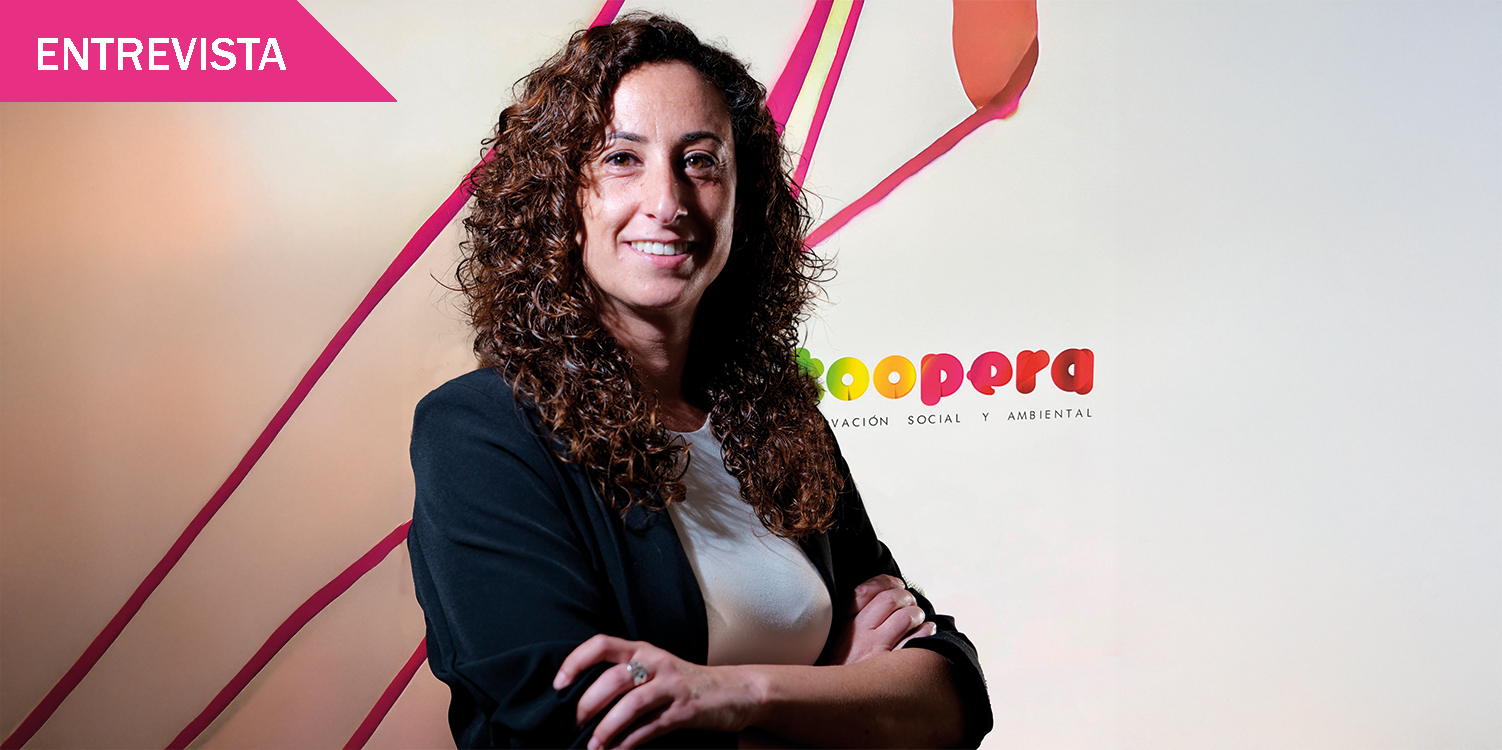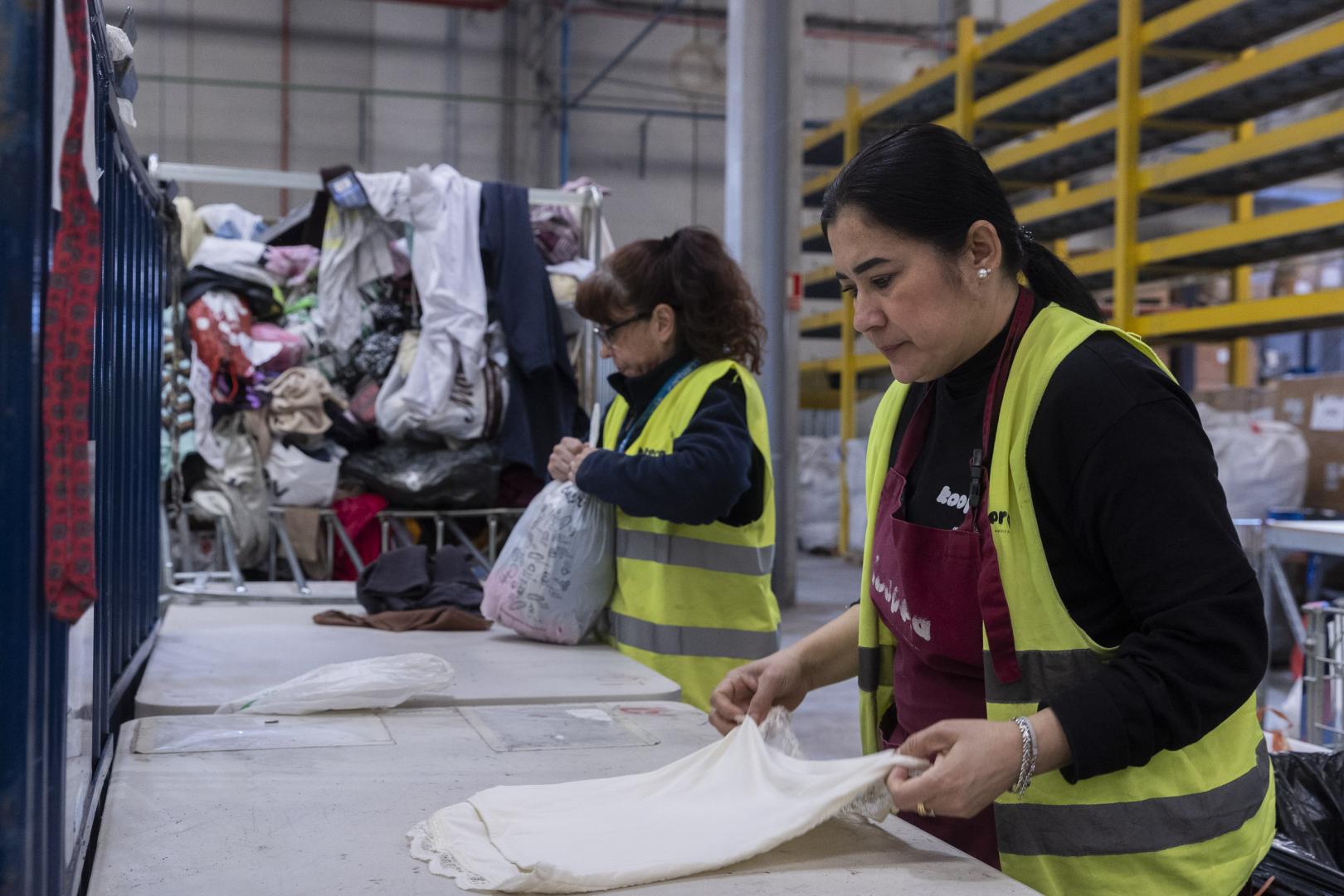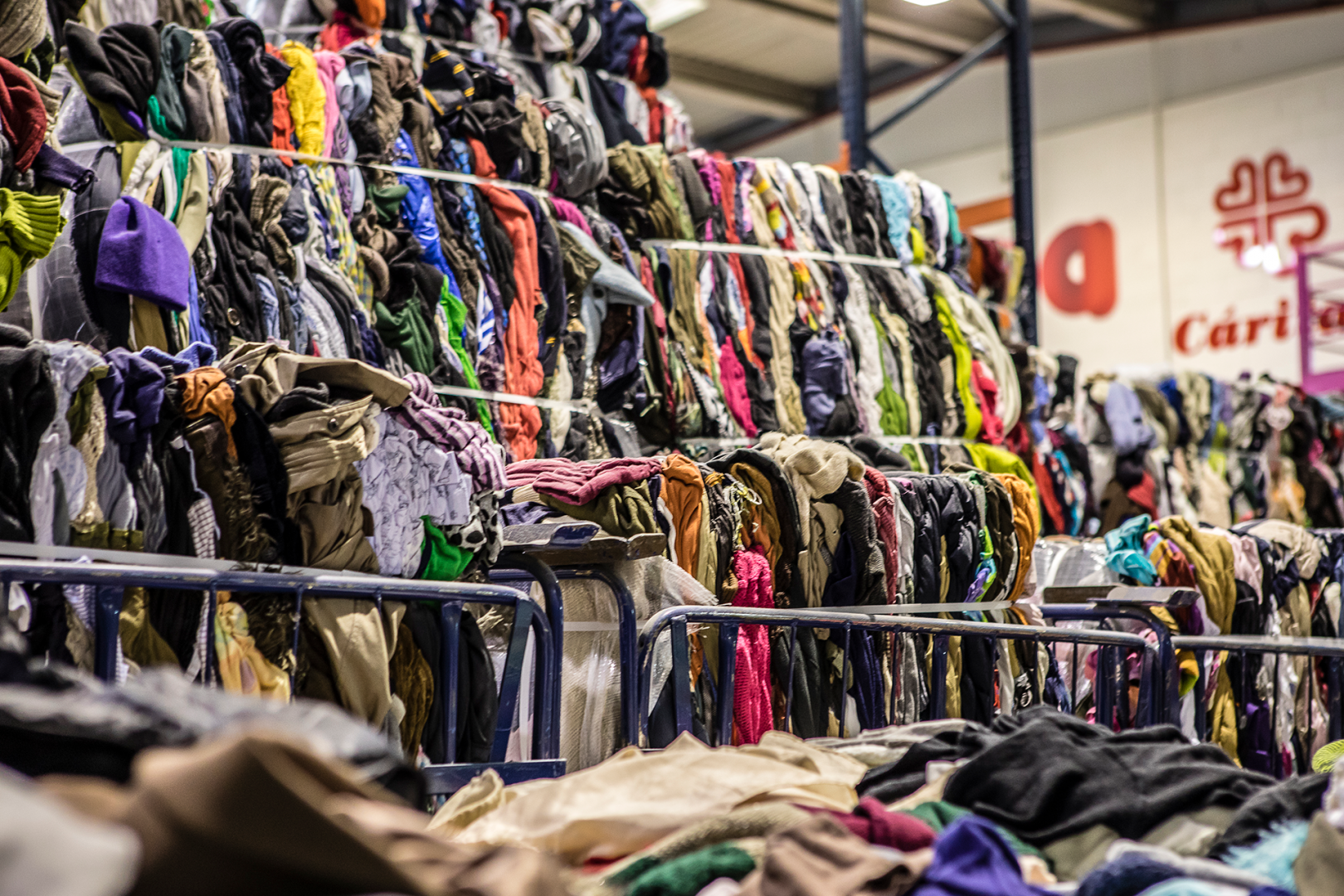Aidé Gaona, responsible for RESINTEX, draft KOOPERA: “ With the support of the CDTI and of european funds ERDF, we are pushing for new circular chains in the textile and chemical warfare ”
With the support of Innovation and CDTI cofinancing of erdf funds, the social cooperative KOOPERA drives RESINTEX, a pioneer project of chemical waste recycling of non-reusable textile combining innovation, sustainability and inclusive employment

Reuse, recycling and inclusion are the three premises that define the mission, a cooperative KOOPERA social initiatives with more than three decades of experience in the management of waste textiles and employment integration of people in situations of vulnerability.
With a network of organizations linked to Caritas, KOOPERA years been a pioneer of circular economy, combining social and environmental sustainability. Now, is a step further RESINTEX, an innovative project focused on the recycling of textile polyester chemical that is making a difference in the preparation for waste recycling posconsumo not reusable.
The initiative was supported by the CDTI innovation and is co-financed with european funds ERDF, which has been instrumental in driving the new circular model from a non-profit organization. “ this project would not have begun without this support, ” says Aidé Gaona, responsible for RESINTEX.
These public aid, explains, make the difference between the possibility to innovate or not. “ Is a prerequisite for the companies as KOOPERA, that we do not have sufficient funds of their own, we can tackle all the necessary investment to achieve this transition towards circular economies, ” says.
“ the benefits of our activity has a direct return in society, either through we generate employment for persons at risk of or through the provision of goods that will enable a more responsible consumption, quality and secure. ”, In parallel, adds that this momentum also opened new opportunities for industrial innovation: “ These funds are allowing us to create new value chains circulars, both in the textile industry and in chemistry and develop business models more sustainable and innovative approaches ”.
A network for innovation with social impact
With 396 personnel only in KOOPERA Environmental Services — the branch devoted exclusively to the integral management of textiles posconsumo — more than half of which can be found at different stages of sociolaboral insertion, and a structure that integrates inclusion companies, foundations, cooperatives and operates three KOOPERA treatment plants, automated 2.467 textile containers and a network of 36 secondhand shops Koopera Store in Spain. Through them not only promotes responsible consumption, but also channels grants social consequences of its activity of classification and reuse.
In addition to reuse, KOOPERA carries out activities in preparation for recycling. Its model includes processes highly tecnificados classification, technologies such as NIR (near infrared spectroscopy) for the detection of the fibres and automation systems and voice recognition on the soles of ranking. This enables them to identify accurately the composition of each separate collateral and by type of fibre, an essential step towards its reintroduction in new industrial processes.
“ In 2024, there have been more than 30 sensitization visits to our facilities, in addition to a large outreach work in media and social networks, ” emphasizes Aidé Gaona. “ We want the citizens understand that much of what we cannot be used as collateral for a reassessment. but it can if handled properly ”. Hence the importance of projects like RESINTEX.
The use of waste
The objective of RESINTEX, an acronym for “ development of processes of classification, pre-treatment and separation of waste fibre textiles posconsumos reusable not ”, is to generate a fraction of waste textiles, rich in polyester pretratada and can be recycled chemically and, of course, economically competitive. “ this project has a direct impact on job creation of linkages, incorporating a new industrial activity linked to the recycling preparation, ” says Gaona.

Classification Operarias analyse pledge donated in containers Koopera
The key lies in detecting since the first phase of the process — the classification for reuse — those clothes that contain a high percentage of polyester. This reduces the cost of all subsequent treatment, without altering the current operations. "The greatest challenge was to establish a methodology for identifying rich in polyester flows without changing our conventional operating technical processes or to significantly increase the costs, ” explains. “ As a result, we have managed to obtain a secondary raw material quality at a competitive price.
The project shows that it was possible to integrate technological innovation and economic efficiency in a model social commitment. “ our goal is not only reduce waste, but also to reduce its consumption of raw materials and value chains to generate more sustainable in the textile and chemical warfare ”, add.
At the service of circularity
The process implemented in RESINTEX is based on three fundamental technological phases: the classification by composition, the elimination of improper (as racks, buttons or non-textile elements) and the pre-treatment of the fabric garments to adapt the textile waste skill requirements for the recycling process. “ Thanks to the optimization of these stages, we get a polyester textile waste suitable for use as feedstock in the chemical industry, ” explains Gaona.
In addition, the experience of KOOPERA has enabled us to show that many items that had previously been deemed unfit for recycling can be fitted if applies an appropriate mix of industrial and technical analysis. In this regard, the joint work with partners of the project has been key.
Collaboration público-privada to innovate
RESINTEX developed in collaboration with the technological centre ITENE the company and OMAR COATINGS, specialized in the development of unsaturated polyester resins. Each entity has provided knowledge essential to advance the project with technical soundness and market vision.
“ ITENE provides a highly qualified team, with wide experience in characterization of materials and recycling, which is to be essential to analyze results and make technical decisions ”, underlines Gaona. “ OMAR COATINGS, for its part, provides in its know-how chemical recycling and the development of new resins. Its commitment to innovation and its strategic vision has been instrumental in turning the textile waste in a real business opportunity ”.
Gaona considers that this partnership between social partners, technological and industrial is proof that the collaboration público-privada can accelerate the transformation towards a truly circular economy. “ Add additional capabilities that brings scale sustainable solutions to national and european level ”.
Reuse, recycle after first
One of the particularities of KOOPERA model is its priorities. First, then recycled reuses. “ Everything that we collect is a first line of classification that gives priority to the reuse. Only that there can be reused is destined for recycling ”, clarifies Gaona.
To that end, it is important to inform the consumer on the limits of the reuse and recycling possibilities of textiles. “ Not everything that is deposited in the container can result in a second hand store, but it can have a second life as a raw material if handled properly ”, points. The challenge in many cases is the mixing of materials in the garments which makes it more difficult and expensive recycling processing.

Textile Material classified by composition
A future with a vocation and transformative
The momentum of RESINTEX, KOOPERA aspires to be consolidated in coming years as a strategic player in the preparation for the textile recycling, while maintaining its leadership on the reuse socially responsible. “ we are going to remain a national and international reference on the reuse, but we also want to lead the transformation towards new models of recycling, ” says Gaona.
The draft is setting a RESINTEX key developments for the organization, both by technical progress and alliances. “ Has allowed us to gain knowledge in recycling of polyester, generate new processes and work with actors who share our vision of sustainability, ” concludes.
And it is that, beyond the technological innovation, this project shows that it is possible to address environmental challenges complex from a people-centred approach. A model of circular economy that does not leave anyone behind.
CDTI Innovation
The centre for technological development and innovation, CDTI E.P.E. is a public company under the ministry of Science, innovation and universities, whose goal is the promotion of technological innovation in business. The CDTI mission is to ensure that the business fabric english generates and transform knowledge into growth científico-técnico globally competitive, sustainable and inclusive. By 2024, within the framework of a new strategic plan, the CDTI provided more than $2.3 billion euros of support for business startups and spain.
More information:
Office of the press
prensa@cdti.es
91-581.55.00
On The Internet
Website:www.cdti.es
In Linkedin:https :// www.linkedin.com/company/29815
X:https :// twitter.com/CDTI _ innovation
On Youtube:https :// www.youtube.com/user/CDTIoficial
This content is copyright © 2025 CDTI, Soes. Permitted for use and reproduction by quoting the source and digital identity of CDTI (@CDTI _ innovation).